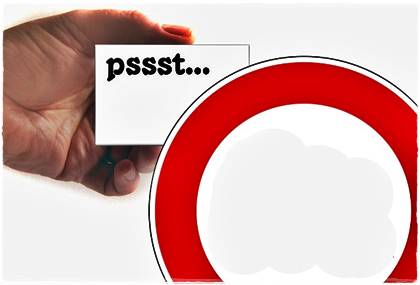The Balance Between Freedom and Privacy
 Privacy is perhaps one of the most personal issues in today's government and society. An intensely personal issue, privacy pertains not only to the right of the individual to worship in any way he wants, dress in any way he desires, but also to expect that these rights be protected by the government that upholds them.
Privacy is perhaps one of the most personal issues in today's government and society. An intensely personal issue, privacy pertains not only to the right of the individual to worship in any way he wants, dress in any way he desires, but also to expect that these rights be protected by the government that upholds them.
I believe that individuals have the right to privacy and the right to expect the government to uphold that right. I believe that the government may hold no explicit view on privacy as a separate issue, but all the issues that the government uphold for each individual man, such as the right to the freedom of speech, the right to vote, the right to hold assembly, the right to bear arms and the right to worship in the way in which we choose imply and demand that each individuals privacy be upheld and respected.
Our body is our own, as exemplified by the right to do with it as we please. We are allowed to tattoo, pierce, or even maim our bodies if we desire to do so. While I may look at a man with three earrings in his eyebrow as a bit strange, it is his right to do what he wishes with his own body. In addition, I believe the right to live or die is a chose that each of us makes on a daily basis. The choice may be seen on a dramatic level, in the case of individuals choosing to commit suicide for various reasons, but on a much less obvious scale, we choose every day what foods we eat, what risks we take and so on. If the right to live or die is taken from an individual, then it would seem to me that these choices as well should be regulated by the government, and it should be law that we each eat healthy, exercise and live with caution.
I also believe that most Americans believe the choice we make in whom we marry is expressly our own. Arranged marriages are uncommon in the U.S., as marriage is a lifelong commitment and I believe is one that can be decided upon only by the parties expressly involved in the pact. No man should be forced to marry a woman he does not know. Along the same lines, I believe the home is a sanctuary for every man, and that the goings on in one's home - when not interfering with the personal safety and right to life that every individual has - should be expressly protected. The line between privacy and upholding the law in this area may be blurred, as individuals who are breaking the laws should not be expected to be able to remain exempt from those laws and exempt from prosecution or search. However, I do believe that law abiding citizens should have their right to privacy within their home protected by our government.
Court interpretations of the right to privacy vary. According to Griswold versus Connecticut, the right to an individual's privacy in marriage was upheld. "Although the Bill of Rights does not explicitly mention "privacy", Justice William O. Douglas … ruled that the right was to be found in the "penumbras" of other constitutional protections". In addition, Justice John Marshall Harlan II cited that the fourteenth amendment, which includes the Due Process law, expressly defends the right to privacy (Wikipedia, Griswold vs. Connecticut, para 2). The right to Due Process of Law is the " principle that the government must respect all of a person's legal rights instead of just some or most of those legal rights when the government deprives a person of life, liberty, or property" (Wikipedia, Due Process, para 1). Due process is often used to protect an individual's right to privacy, citing that the right to privacy is a foundation stone for many laws, and that due process protects those rights whether they are expressed or implied.
Conversely, though, the Supreme Court has also upheld decisions that they acknowledge violate an individual's right to privacy. One such decision was Michigan State Police versus Sitz in 1990. The court acknowledged that sobriety check points violate an individual's right to privacy by stopping cars based solely on a predetermined value, such as every 3rd car, not based on the driver's actions. However, even though this action violates an individual's right to privacy, the Supreme court stated that the minor infraction of the right to privacy was dwarfed by the need to remove possible drunk drivers from the road, as it is illegal simply to drive with an elevated blood alcohol count, it is not necessary to drive erratically.
While strongly support the right to privacy, as I stated before, I believe that upholding the law and preventing the endangerment of individuals is also completely necessary, and I would agree with the court's decision in this case. However, I do not agree with actions such as allowing search and seizure with no evidence of wrong-doing or random invasion of privacy. The right to privacy is certainly a convoluted issue warranting the attention of lawmakers and citizens alike, as we struggle to maintain the balance between freedom and law in this amazing country called America.
References
"Due process." Wikipedia, The Free Encyclopedia. Wikimedia Foundation, Inc.
"Griswold v. Connecticut." Wikipedia, The Free Encyclopedia. Wikimedia Foundation, Inc.
"Sobriety checkpoints." Wikipedia, The Free Encyclopedia.